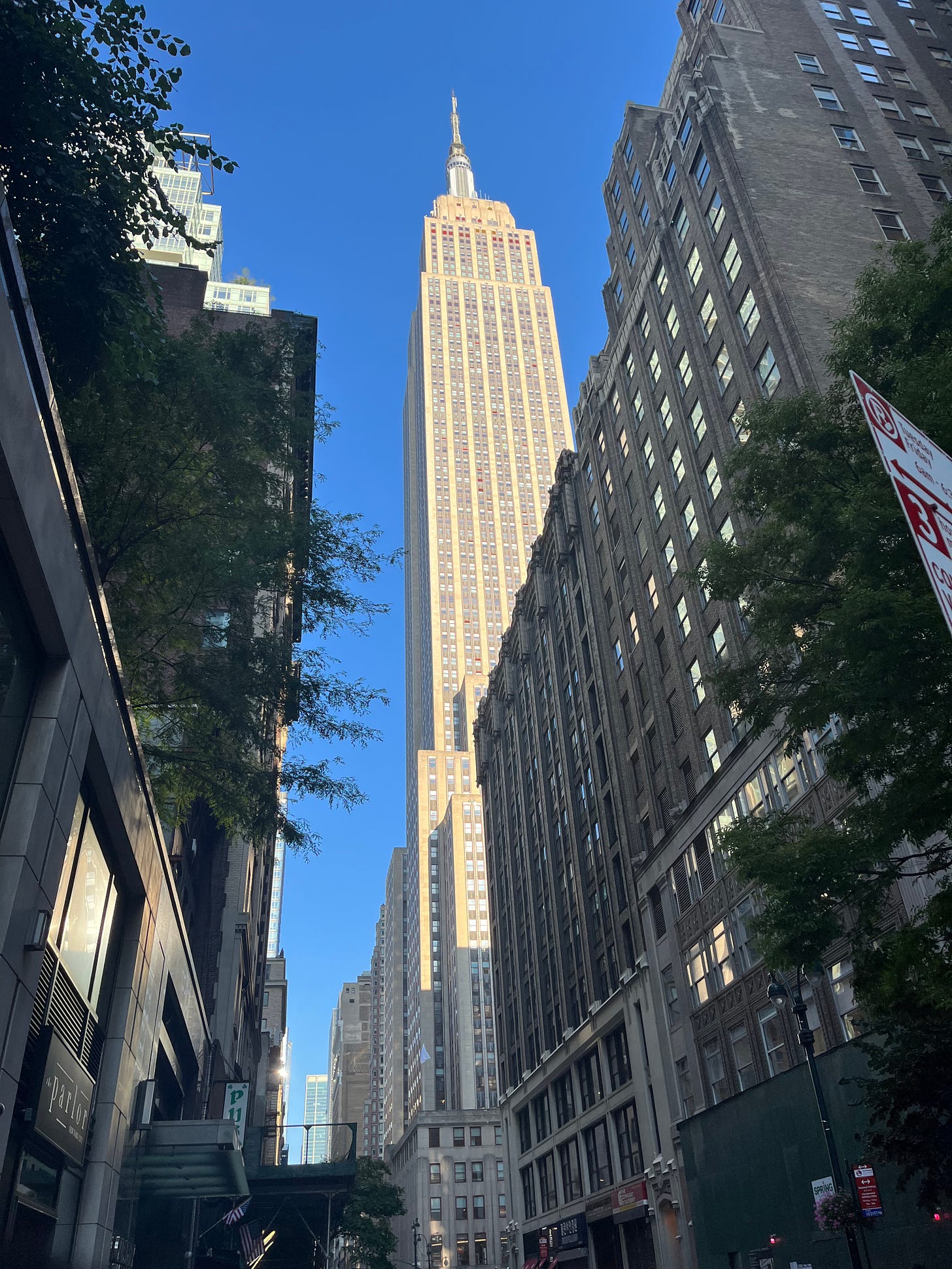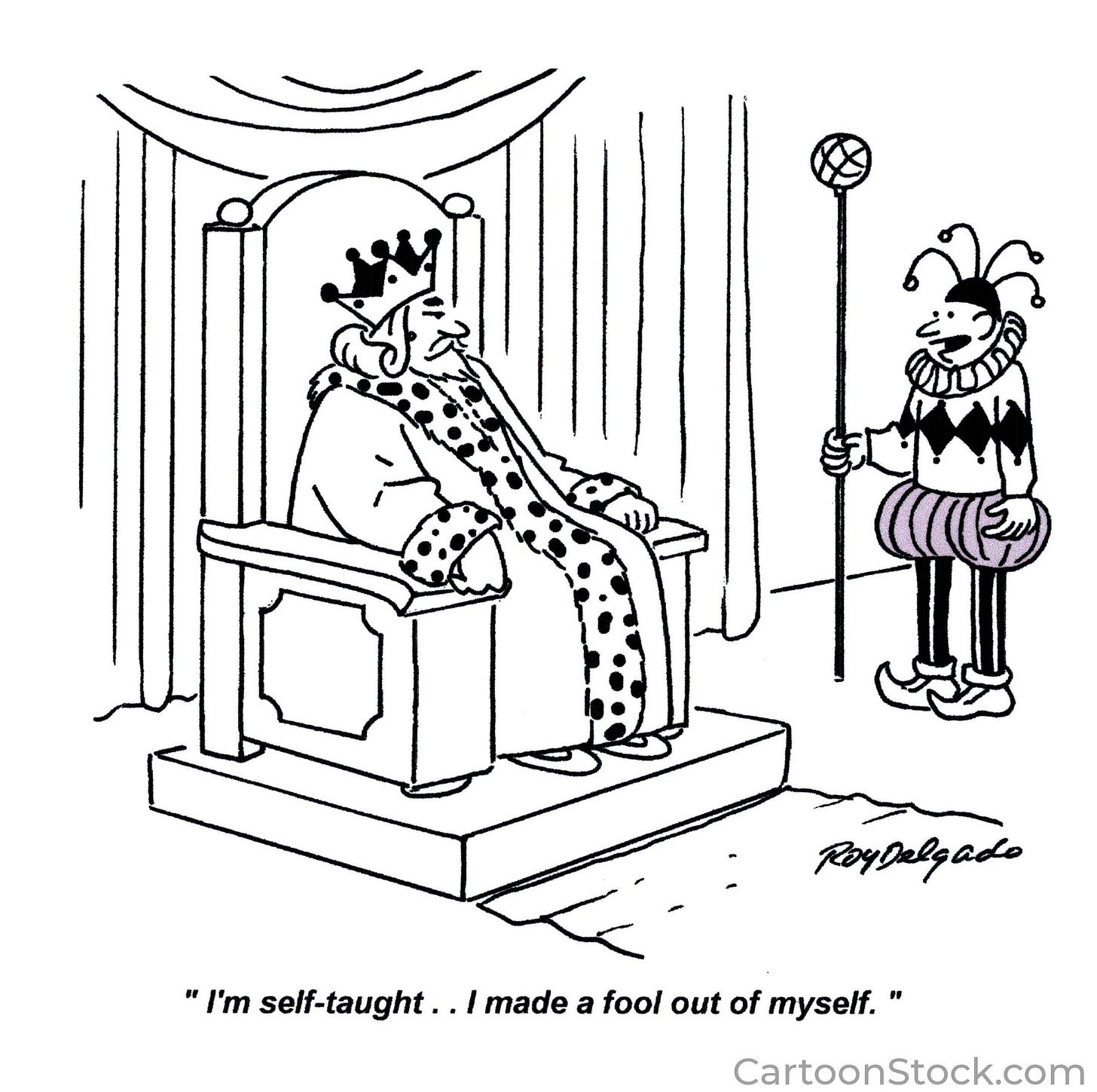This edition’s title is borrowed in tribute from the excellent podcast with the same name, one that played a big role in this story.
Something I’m Learning
Two years ago, I was in Uganda, deep in a jungle with a memorable name: The Bwindi Impenetrable Forest. We were hiking to see mountain gorillas. Hacking through the thick undergrowth with a machete, the ranger who was our guide suddenly stopped, turned around and said, with tears in her eyes, “Thank you for coming. We’re hearing how climate change means fewer people want to travel, but I can tell you one thing. Without tourists, the gorillas have no chance.”
That was when I decided to spend the next chapter of my career in addressing climate change. There was just one problem. Despite an Ivy League degree and over 20 years of experience in global entrepreneurship and social impact, including 10 years as a CEO, I had never worked on climate before. So while I believe I have transferrable skills, my resume wasn’t making it through any climate organization’s screening process.
The above is how I began my talk during New York Climate Week in September last year. I was giving this talk sixty-five floors up the Empire State Building, in a conference room with a panoramic view of the magnificent New York harbor that seemed to be basking in gorgeous Fall morning sunshine. It was an invite-only event co-organized by LinkedIn, Salesforce, the World Economic Forum, and others, on the intersection of climate change and talent development. I’d been invited to present a new climate initiative I’d been midwifing into existence.

I’ll write about this new program another time because that’s not what this edition is about. Rather, it’s about why I was pinching myself as I stood on a busy midtown Manhattan street and squinted up at that iconic needle-crowned tower, reflecting on going from being unhireable in climate change to being considered an innovator, a two-year journey of going from 0 to 1.
Two years previously, despite my newfound conviction after Uganda (and other similar travel experiences), I quickly realized that not knowing very much about climate change was a major liability (duh!). I needed to study. So I created my own ‘master’s degree’ of sorts: I did some reading (books by John Doerr, Katherine Hayhoe, Simon Mundy, and subscribed to a bunch of newsletters), watched several TED Talks, and listened to dozens of podcast episodes while running on the National Mall in Washington, DC (the most inspiring of which was from My Climate Journey founder Jason Jacobs, whose story is a classic case of ‘just begin and let the work teach you’). I also took a few short online certificate courses, the best of which was this one.
I share these resources not so that you can study them too, but to show it’s possible to teach yourself without going back to school.
But studying is only one part of learning. As described previously, I changed strategy from looking for a job to offering consulting. And I worked fairly widely across the climate philanthropy sub-sector. Over the first 6 months of 2022, I developed a business plan on a new strategy on climate talent for a foundation, created a portfolio of options for philanthropists to invest in African climate ventures, helped a highly technical nonprofit (whose work largely went over my head) develop a new fundraising strategy, and led a research project on conservation funding in Africa. Each of those was for a different client, and each taught me so much. It was like getting paid to do a master’s in climate.
I was spurred on while doing this by a quote from Naval Ravikant: “It’s much more important today to be able to become an expert in a brand-new field in nine to twelve months than to have studied the ‘right’ thing a long time ago.” My corollary to this is that once you know how to learn, you should begin to work on your topic of interest rather than go to university to study it.
Eventually, through all that work and study, and reflecting on my own struggles with getting hired, I arrived at my personal theory of change on climate i.e., I figured out what I could bring to this field. And that’s what I was up in the Empire State Building to present.
The day after that talk, the foundation that invited me to speak approved a very large grant to launch the program I had conceived. Since then other funders have also chipped in. And as I write this, I’m in an airplane en route to Singapore to kick-off the first of a series of new programs that will help people like me - i.e., climate unhireables - around the world bring their expertise into the climate movement.
So if you’re reading this and dreaming of your own contribution to whatever issue matters most to you, I hope you’ll get going and let your work teach you. I hope you’ll ‘pick yourself’. Above all, I hope you just get started.
Something to Consider
In keeping with this spirit of possibility and progress, here’s more inspiration from Future Crunch: 66 Good News Stories You Didn’t Hear About in 2023. (Really, it will make your day.)
Something to Quote
Traveller there is no path. The path is made by walking.
- Antonio Machado, Border of a Dream: Selected Poems





I have recently developed a passion for gorillas and want to go to Uganda to pay homage. Maybe a new career is on the horizon!? You are quite inspirational.
Fascinating journey Roshan... I wonder what will be your next one after this has reached a certain maturity and stage of development. You may want to connect with Suri Venkatachalam and his wife Harini Nagendra. Both of them are engaged in similar fields. You already know and have met Suri Venkatachalam... Bash on ...may this zest for learning and gaining deep understanding of new domains continue and flourish